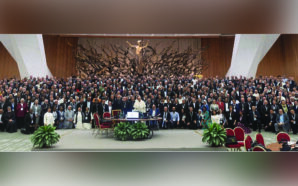People generally think that the proper response to crime is to punish criminals. So when people become anxious about crime, Australian governments build gaols.
The Catholic approach to crime, as to other social evils, is to think of persons: the persons affected by the crime, those who have perpetrated it and the community of which they are part.
Seen from that perspective the heavy reliance on gaols is counterproductive. Imprisonment is sometimes necessary to protect the community, but rehabilitation should be the first objective in penal policy.
People commit crimes because their connections with society are weak. They have often received no respect and are unable to give it.
Isolation from families and society in prisons intensifies their disconnection, and explains why so many reoffend on leaving jail.
The emphasis on imprisonment injures society because it leads to anti-social behaviour and diverts resources that could have been dedicated to community health and education to profit the wealthy companies that run prisons.
In a Catholic response to crime, the first step is to see as persons both those who commit the crime and those hurt by it, each with a unique value, and to see the crime as a sign of broken relationships leading to a lack of due respect and a lack of connection to society on the part of the perpetrator.
The challenge is to encourage the persons who offend to grow in respect so that they accept their accountability to the people offended and to representatives of the community. This is called restorative justice.
Programs of restorative justice, most notably in the justice system in Sweden and in New Zealand Maori communities, work to build reconciliation based on truth and on being accountable to one another.
In Victoria and the Northern Territory, too, we at Jesuit Social Services are engaged in justice programs for young people.
Restorative justice recognises the isolation that both the perpetrator and victims of crime can experience, and involves the community in a conversation that hopefully will end in reconciliation them based in the acceptance of accountability to the community, and in support for the perpetrator to connect in practical ways with society.
Fr Andrew Hamilton SJ writes for Jesuit Communications and Jesuit Social Services.








